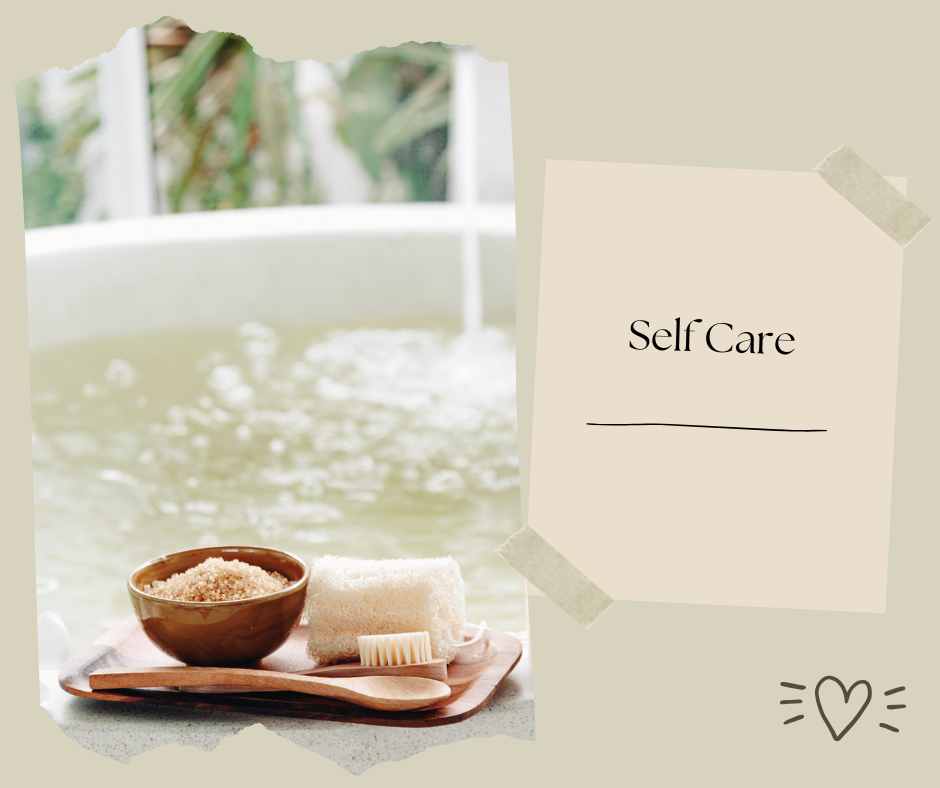Menopause is a transformative stage in a woman’s life. It marks the end of one chapter and the beginning of another, bringing changes that impact the mind, body, and soul.
I personally started to notice changes in my mid-40s when perimenopause hit. I struggled with the changes in my body and felt like I was on an emotional roller coaster. I wanted to share with you how I managed to reconnect with myself and navigate the changes Menopause brings to a women’s well-being.
While I understand the transition may feel overwhelming, it also presents an incredible opportunity to reconnect with yourself on a deeper level.
I want to dive deeper and explore with you how menopause affects women, the feelings of uncertainty that arise, and actionable tips to help you navigate this phase with grace and self-compassion.

The Mind-Body Connection During Menopause
Menopause triggers hormonal shifts that can feel like it’s taking over every part of your being. Physically, you may experience symptoms like:
- Hot flashes and night sweats disrupting sleep.
- Weight fluctuations and changes in body composition.
- Fatigue and reduced energy levels.
The emotional and mental impacts can be just as profound. Many women report mood swings, heightened anxiety, or even depressive symptoms. Cognitive challenges like forgetfulness or difficulty concentrating are also common. These changes often lead to a sense of disconnection, as if your body and mind are no longer in sync.
Understanding these shifts is vital. Your body is adapting to a new normal, and acknowledging this connection is the first step toward reclaiming your balance.
Feelings of Loss and Identity Crisis
For many women, menopause feels like losing a part of themselves. The end of reproductive years can bring grief, even if you don’t plan on having more children. You might feel like you’re saying goodbye to your youth, vitality, or the person you used to be.
This stage often leads to a deep sense of questioning:
- “Who am I now?”
- “What is my purpose in this phase of life?”
These feelings, though difficult, are normal. They’re part of a larger process of redefining yourself and embracing the woman you’re becoming.
Shifting the Perspective: Rebirth, Not Loss
Rather than seeing menopause as an ending, it helps to view it as a new beginning. This stage offers the chance to pause, reflect, and redefine what’s important to you. You’re not losing yourself—you’re evolving into a more authentic version of who you are.
Why Reinvention Matters
This period of change invites you to reconnect with your true self. You have the opportunity to rediscover what brings you joy, fulfilment, and peace. It’s a chance to focus on your growth, prioritize self-care, and create a life that aligns with your values and aspirations.
Practical Tips to Navigate Menopause and Reconnect with Yourself
1. Practice Self-Compassion
Start by being kind to yourself. Menopause is a natural transition, not a sign of losing who you once where. Remind yourself that it’s okay to feel vulnerable and uncertain. Replace self-criticism with understanding, and focus on the positive aspects of this stage.
How to Incorporate Self-Compassion:
- Speak to yourself as you would a close friend.
- Write affirmations reminding you of your strength and resilience.
- Allow yourself to rest without guilt.

2. Engage in Mindfulness Practices
Mindfulness helps you stay present and grounded, reducing anxiety and promoting clarity. Activities like meditation, deep breathing, and yoga can help you manage emotional fluctuations and reconnect with your inner self.
Try This Simple Breathing Exercise:
- Sit comfortably in a quiet space.
- Close your eyes and take a deep breath in through your nose for four counts.
- Hold your breath for four counts, then exhale slowly for six counts.
- Repeat for five minutes to feel calmer and more centred.
3. Explore Journaling for Self-Reflection
Writing is a powerful tool for self-discovery. Journaling allows you to process emotions, clarify thoughts, and track your progress through this phase.
Prompts to Get Started:
- What are three things I’m grateful for today?
- How do I feel about the changes I’m experiencing?
- What dreams or goals have I yet to pursue?

4. Prioritize Physical Well-Being
Your body needs extra care during menopause. By nurturing your physical health, you can feel more energized and in control.
Tips for Physical Health:
- Nutrition: Include nutrient-rich foods like leafy greens, whole grains, and lean proteins. Avoid processed foods and excessive sugar.
- Exercise: Regular movement boosts mood, strengthens bones, and helps maintain a healthy weight. Activities like walking, swimming, or Pilates are gentle yet effective.
- Hydration: Drink plenty of water to combat dryness and support overall health.
5. Reconnect with Your Passions
What hobbies or activities have you always wanted to try? This is the perfect time to explore them. Reigniting old interests or discovering new ones can bring a sense of purpose and joy.
Ideas to Inspire You:
- Take an art or cooking class.
- Learn a musical instrument.
- Volunteer for a cause you care about.
6. Cultivate Relationships
Building meaningful connections can help you feel supported and understood. Reach out to friends or join groups where you can share experiences with women going through similar transitions.
Ways to Foster Connection:
- Host a monthly gathering with close friends.
- Join a support group for women.
- Schedule regular check-ins with loved ones.
7. Seek Professional Support
Sometimes, navigating menopause requires additional help. Don’t hesitate to consult with professionals who specialize in women’s health, therapy, or holistic practices.
Helpful Resources:
- Therapists: Counseling or hypnotherapy can provide emotional support.
- Nutritionists: They can guide you toward a diet tailored to your needs.
- Physiotherapists: If you’re dealing with physical discomfort, they can create a plan to alleviate symptoms.

8. Create Rituals for Self-Care
Rituals can anchor you during this transformative time, offering comfort and stability.
Simple Ritual Ideas:
- Start each morning with a calming tea and a gratitude practice.
- Dedicate Sunday evenings to a relaxing bath or skincare routine.
- Create a bedtime ritual to improve sleep quality, such as reading or meditating
Rediscovering Yourself: The Power of Openness
Navigating menopause with openness allows you to embrace this stage of life as a time of empowerment. By leaning into the changes and focusing on self-care, you can reconnect with yourself and discover new strengths.
Remember, menopause is not the end of your story—it’s a transformative chapter. Use this time to focus on your well-being, pursue passions, and nurture relationships. You are evolving into a wiser, more resilient version of yourself. Trust the journey, and give yourself the love and care you deserve.
You’ve got this, and the best is yet to come.





